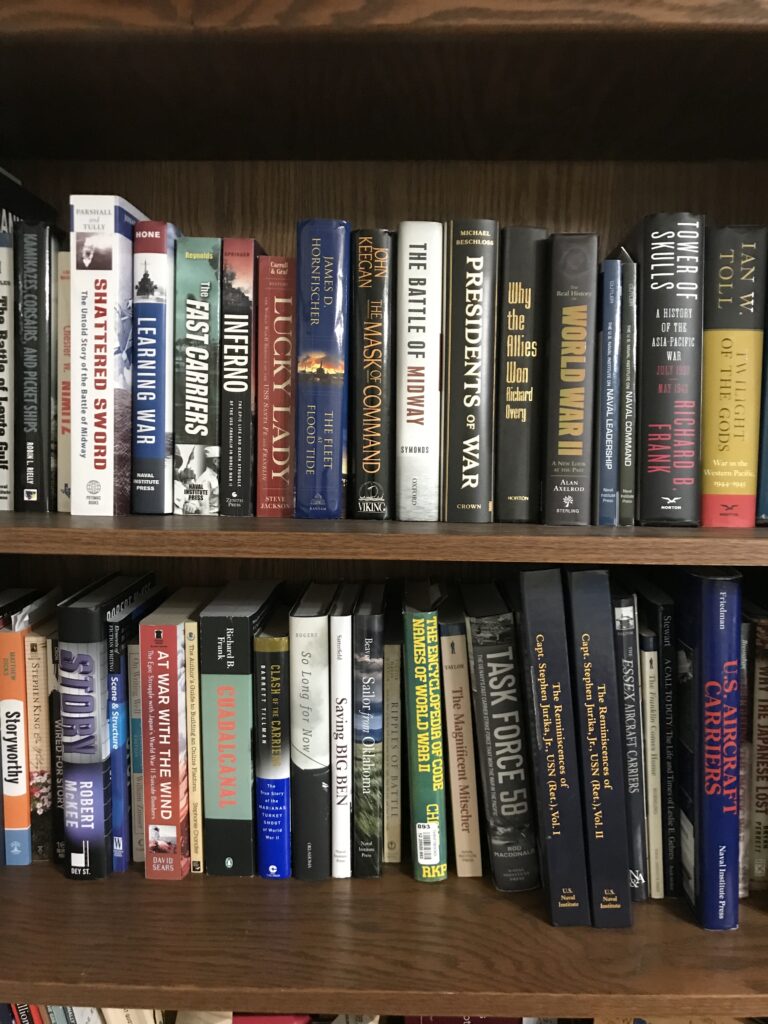When Not To Be Harsh On Historians or Authors

Bottom line up front: Do not condemn the historians or authors who writes detailed histories for one or two minor mistakes. Yes, you have read dozens of books on that particular topic, and now you notice that the author misstated a fact or stated an opinion with which you disagree. If the fact or the opinion is peripheral to the book’s premise, that doesn’t ruin the entire book. Let me clarify that I’m talking about one or two instances per book. If there are multiple mistakes or plagiarism, that’s a different story. (I have seen one book riddled with errors, including one outright lie. That’s not what I am writing about here.)
Due to reading books by historians for sixty-plus years and researching USS Franklin’s story, I have read more books on historical topics than most people. I am not surprised by minor errors such as incorrect dates, and I usually disregard the author’s opinion when it is unrelated to the book’s topic.
About a week ago, I was scrolling through Facebook when someone in one of my numerous history groups asked what we were reading. I replied, giving the name of a book I was reading about a US Navy ship during World War II. I soon received a comment from someone less than impressed with that book. He wasn’t specific, so I headed to Amazon and read the reviews. There, I found he had left a three-star review of the book. I agreed with him on a couple of points. Still, he took the historians who authored the book to task on several opinions and a factual error that had nothing to do with the book’s subject. (They related to something that happened in 1942 when the book’s story occurred in 1945.) I don’t mind a reviewer pointing out errors, but they should be kept in context. This reviewer was close to making a mountain out of a molehill.
Bottom Line (Again) At The Bottom
When you read a nonfiction book, especially one on a historical event, cut the author some slack. They have written a 400-plus-page book and might get a caption wrong (a common error) or misstate a minor fact. I find, on average, one or two minor mistakes. That author is only human. Yes, you are an armchair historian, but if you have never researched a book or written one, don’t lose all respect for that author or their book because they made one of two minor errors. No one is perfect.
Did you arrive here via a search engine? I am the author of the forthcoming book Heroes By The Hundreds: The Story of the USS Franklin (CV-13). In addition to writing about the bravery of the crews that saved her, I will discuss the lessons we can learn in leadership and decision-making and the changes the US Navy made because of those lessons.
Feel free to follow me on Facebook. There, I am M. Glenn Ross, Author. I also write a monthly newsletter, Glenn’s Action Report, about subjects I find interesting in my research. You can sign up for it below. Feel free to leave a comment or ask a question. Thanks for reading.
-Glenn